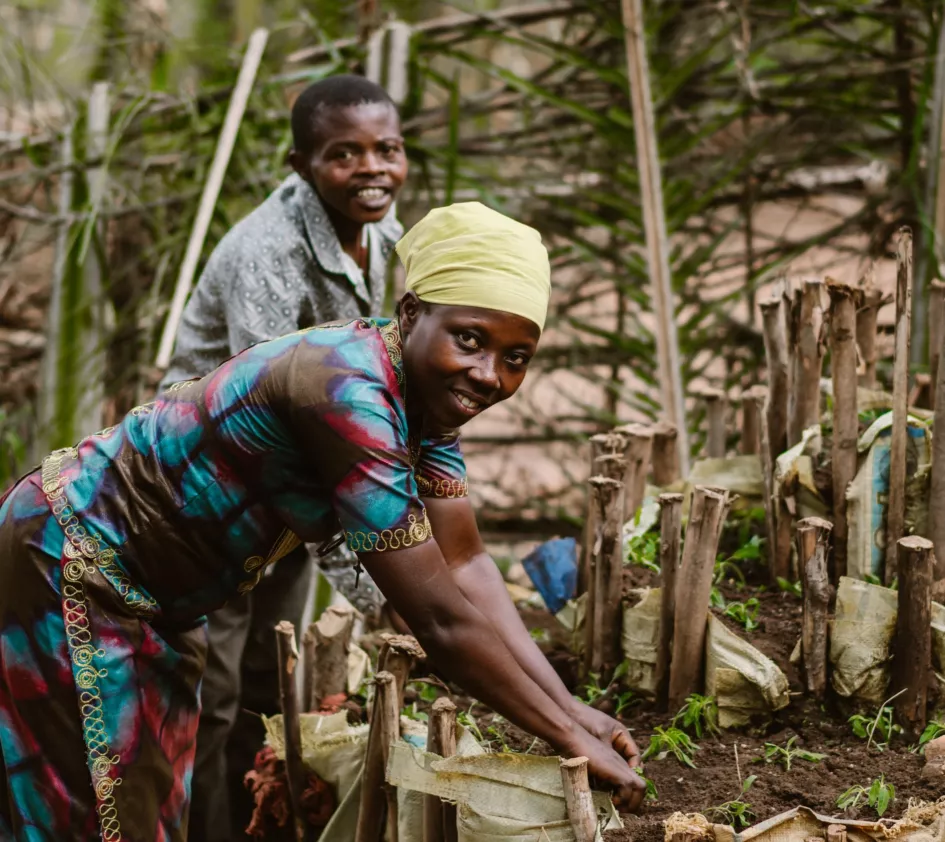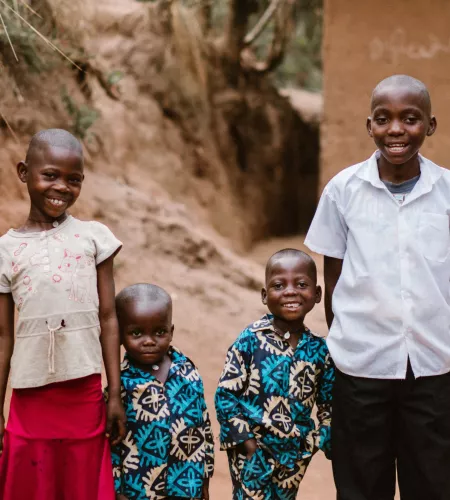Athanasie’s small house is surrounded by green hills. Nearly 90 percent of Burundi’s population depends entirely on agriculture for their livelihoods, and so does Athanasie’s family. On the other hand, Burundi is one of the most densely populated countries in the world. As a result, many can’t make ends meet with only a small piece of farmland.
All Athanasie wishes for her children is to have a good future. The family took the opportunity to improve their agricultural production by implementing the inclusive PIP approach in their household as part of the We are Able! programme. With this approach, households are challenged by visualizing their ideas for the coming years. We are Able! adapted the PIP approach to include people with disabilities, so that they can actively take part in realizing a joint vision for their livelihood.



